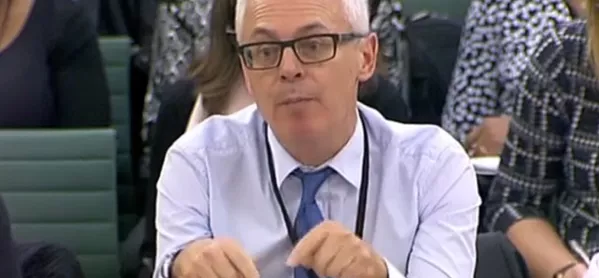The Department for Education’s top civil servant has admitted that the department needs to improve its use of statistics after a row over misleading comments on funding and school performance.
Jonathan Slater, the permanent secretary at the DfE, has written to the Office for Statistics Regulation, the regulatory arm of the UK Statistics Authority (UKSA), after a reprimand from the UKSA which said that it had “serious concerns” about the DfE’s presentation and use of statistics.
Mr Slater has now responded to that reprimand, saying: “We need to improve our performance, as demonstrated by the specific issues raised in your chair’s letter to my secretary of state.”
The original letter from the UKSA to education secretary Damian Hinds said that the authority had raised concerns with the DfE on four occasions, and yet the department did not appear to have resolved the issues.
The DfE's 'misleading' figures
The four occasions were:
- A claim from school standards minister Nick Gibb that the reading abilities of nine-year-olds had “leapfrogged up the rankings” from 19th out of 50 countries to 8th. The UK Statistics Authority found this was “not correct,” as England had risen from 10th place in 2011 to 8th place in 2016.
- A tweet about education funding which claimed that there is “more money going into schools than ever before”. The authority said figures were “presented in such a way as to misrepresent changes in school funding” by not breaking down funding according to spending per pupil.
- A blog post about government funding of schools which the UKSA said was skewed to “give a more favourable picture”.
- And concerns, raised by Labour, about the DfE not giving the full picture in terms of rising pupil numbers when highlighting the increasing number of children in high performing schools.
Mr Slater admitted that the article on reading standards should have been clear that the improvement made was between 2006 and 2016, funding comparisons should distinguish between schools and education as a whole, and charts and statistics need to be presented in context.
Mr Slater's letter goes further than a letter sent by Mr Hinds to the chair of the UK Statistics Authority yesterday.
In his response, the education secretary defended the department’s use of figures, although he conceded that the government "could have been clearer" in relation to its league table statement.
Mr Slater added: “I have asked my head of profession for statistics to work closely with policy and communications teams across the department to improve awareness of these important issues and to strengthen our internal process to ensure that figures are both factually accurate and always used in the appropriate context.”





